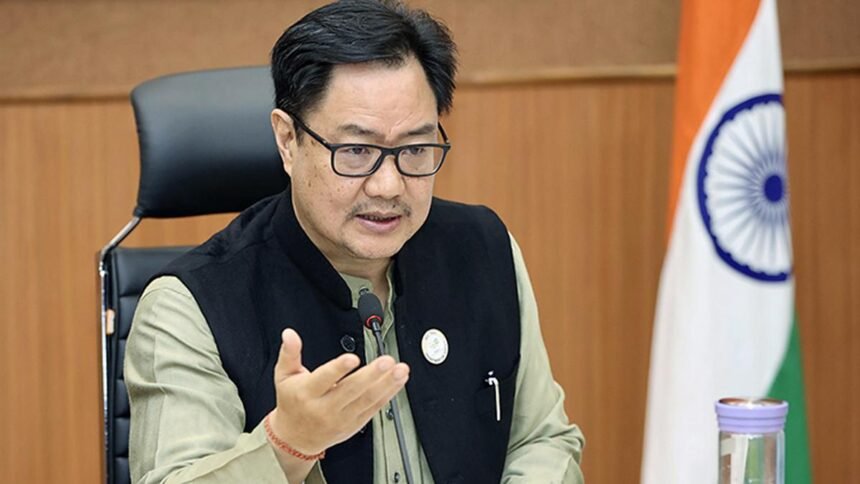Kiren Rijiju Defends Waqf Amendment Act, Says It Will Prevent Misuse of Waqf Property
Union Minister for Parliamentary Affairs and Minority Affairs, Kiren Rijiju, has defended the Waqf Amendment Act, emphasizing that it has been widely welcomed by a large section of the Muslim community for establishing a transparent and accountable system for managing Waqf properties.
In an interview, Rijiju stated that Waqf land had not been properly utilized for the benefit of the Muslim community, with some powerful individuals misusing it. He claimed that opposition to the bill came primarily from those who treat the Muslim community as a “vote bank” and aim to keep it isolated. He also criticized attempts to create fear around the Waqf Amendment Act.
“The changes made in the Waqf Act were suggested by committees formed during the Congress government. Reports like the 1976 Waqf Inquiry Report, the Sachar Committee Report, and the K. Rehman Khan Report all highlighted the need for efficient and transparent management of Waqf properties, which we have now implemented,” Rijiju said. He emphasized that despite having the largest Waqf properties in the world, these resources were not being effectively used for the welfare of the Muslim community.
Rijiju also explained that the Waqf properties were meant for charitable, religious, and pious purposes but had been mismanaged by a few influential individuals. He asserted that the Act would prevent future misuse, ensuring that Waqf resources benefit the broader Muslim community, particularly its weaker sections.
“Some powerful people who misuse Waqf properties will resist these changes, but we are confident that this Act will prevent further exploitation,” Rijiju stated. He rejected accusations that the government was trying to seize Muslim properties, affirming that the Waqf Amendment Act was fully aligned with the Constitution and aimed at rectifying long-standing issues with Waqf property management.
The Waqf (Amendment) Bill, 2025, which passed through both Houses of Parliament earlier this month, aims to streamline the management of Waqf properties, safeguard heritage sites, and promote social welfare. The bill was subsequently given assent by President Droupadi Murmu.
While opposition parties, including those in the INDIA bloc, have criticized the bill, Rijiju emphasized that it was the result of extensive consultations, including with the Muslim community, and that its provisions would benefit all citizens.
Regarding the bill’s impact on northeastern states, Rijiju assured that tribal lands under the Fifth and Sixth Schedules of the Constitution would be protected from being declared Waqf properties, although states like Assam and Manipur might see some changes.
Rijiju also addressed concerns over the bill’s provisions, stating that Waqf properties would now require proper documentation and legal processes to be declared as such, preventing any misuse based on unverified claims. He concluded by reiterating that the government had acted in the best interest of all communities, including Muslims, to ensure fairness and justice.

